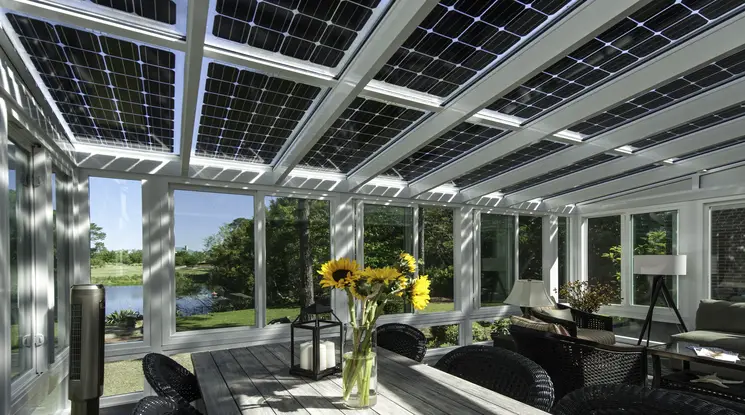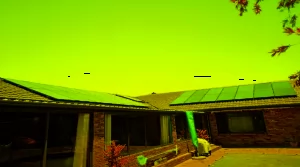In the quest for energy efficiency and sustainability, more homeowners in the Virginia area are turning to solar power. The sun-drenched landscapes of this East Coast state provide an ideal environment for harnessing solar energy. However, as interest in residential solar installations grows, many homeowners are curious about the costs associated with bringing the power of the sun into their homes. In this blog post, we’ll shed light on the intricacies of home solar panel costs in the Virginia beach, offering a clear and concise guide for those considering the switch to solar energy.
Understanding the Factors Influencing Home Solar Panel Costs:
System Size: The size of a solar panel system is one of the primary factors influencing costs. Larger systems can generate more electricity but typically come with higher upfront costs. The size of the system is often determined by the energy needs of the household and the available roof space for installation.
Equipment Quality: The quality of solar panels and related equipment can vary, impacting both performance and costs. High-quality panels with advanced technology tend to be more efficient and durable, but they may come with a higher price tag. It’s essential to strike a balance between upfront costs and long-term benefits when choosing solar equipment.
Installation Complexity: The complexity of the installation process also contributes to overall costs. Factors such as roof type, angle, and shading can affect the ease of installation. Homes with complex roofs or significant shading may require additional labor and equipment, influencing the final cost of the solar panel system.
Local Permitting and Inspection Fees: Each locality may have specific permitting and inspection requirements for solar installations. These fees vary, and homeowners should factor them into their overall budget. Working with experienced solar installers who are familiar with local regulations can help streamline this aspect of the process.
Government Incentives and Rebates: Government incentives and rebates play a significant role in offsetting the cost of solar installations. Federal tax credits, state incentives, and local programs can significantly reduce upfront expenses. It’s crucial for homeowners to explore available incentives and take advantage of these financial benefits.
Breaking Down the Costs:
Average Cost of Solar Panels: As of [Current Year], the average cost per watt for solar panels in the Virginia area ranges from $2.50 to $3.50. This figure includes the cost of the panels themselves and basic installation.
System Size and Cost: A small residential solar panel system with a capacity of around 5 kilowatts (kW) can cost between $12,500 and $17,500. Medium-sized systems in the range of 8 kW may have costs ranging from $20,000 to $28,000, while larger systems of 12 kW or more can range from $30,000 to $42,000.
Installation Costs: Installation costs typically account for a significant portion of the overall expenses. On average, homeowners can expect to pay between $2.50 and $4.00 per watt for installation. This includes labor, equipment, and associated costs.
Government Incentives: Federal tax credits offer a significant incentive for homeowners installing solar panels. As of 2021, the federal Investment Tax Credit (ITC) allows homeowners to deduct 26% of the total installation costs from their federal taxes. State and local incentives, such as rebates and performance-based incentives, further contribute to reducing costs.
Return on Investment (ROI): While upfront costs may seem substantial, it’s essential to consider the long-term return on investment. Solar can significantly reduce or eliminate monthly electricity bills, leading to substantial savings over the life of the system. Many homeowners experience a positive ROI within a few years of installing solar panels.
Navigating the Decision Making Process:
Consulting with Solar Professionals: To determine the most accurate cost estimate for a specific home, consulting with local solar professionals is crucial. They can assess the unique characteristics of the property, recommend an appropriately sized system, and provide a detailed cost breakdown.
Exploring Financing Options: Many homeowners choose to finance their solar installations through various options, such as solar loans, home equity loans, or power purchase agreements (PPAs). Exploring financing options can make solar installations more accessible, allowing homeowners to enjoy the benefits of solar power without a significant upfront investment.
Evaluating Long-Term Savings: When considering the costs of solar panels, it’s essential to evaluate the long-term savings they offer. Over the lifespan of the system, homeowners can potentially save tens of thousands of dollars on energy bills, making the initial investment worthwhile.
Conclusion:
As the sun sets over the picturesque landscapes of Virginia, the potential for harnessing its energy has never been more promising. Home solar panel in the Virginia area are influenced by various factors, but with the right information and considerations, homeowners can make informed decisions that align with their budget and sustainability goals. Investing in solar power not only contributes to a greener and more sustainable future but also brings significant financial benefits to Virginia homeowners ready to embrace the power of the sun.




